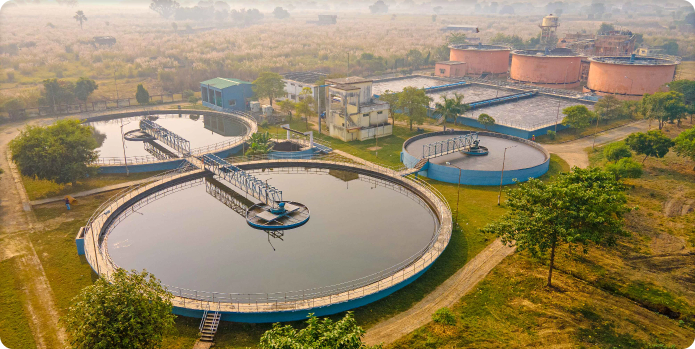Water is critical to both mitigating and adapting to the effects of climate change. We at AEL also consider water as a crucial shared natural resource and its responsible consumption is one of the key drivers of innovation and sustainable economic prosperity of our businesses. Protecting and conserving water resources through prudent and effective water management practices and governance systems are a priority for AEL and integral to our commitment towards water stewardship.
In line with our sustainability goals, AEL sourced 25% of its water requirements in FY 2024–25 from non-competing sources. Wherever feasible, we integrated desalinated seawater into our processes, further reinforcing our dedication to responsible and innovative water stewardship.

Water Management Practices and Commitments of AEL:
Risks Identification
Identifying water-related risks to the business helps us strategies water usage and define the water source, minimizing operational inefficiencies and surface water usage.
Reduction in Water Consumption
Despite the significant expansion of our operations and the addition of three new businesses to our reporting framework, we successfully achieved a 2% reduction in overall water consumption. This accomplishment reflects our unwavering commitment to enhancing water efficiency across all facets of our operations, driven by a deep understanding of water’s critical importance for future generations.
Improving Water-Use Efficiency
- Advanced Monitoring: Systems are installed to track water usage, quality, and discharge, helping optimize water practices.
- Regular Assessments: Internal and third-party evaluations are conducted to identify inefficiencies and guide conservation efforts.
- Targeted Action Plans: Clear goals are set to reduce water consumption and improve wastewater quality through recycling and treatment.
- Operational Measures: Water-saving initiatives include installing efficient fixtures, leak detection, and enhancing recycling systems.
Continuous Monitoring and Reporting
We maintain rigorous monitoring systems to track water consumption, quality, and discharge levels at our facilities. This data-driven approach allows us to identify areas for improvement and make informed decisions to optimize our water management practices continually.

Water management in Coal washery (Closed loop system maintaining zero discharge)
The total washery plant adopts water reclamation system with zero discharge to outside water bodies.......
Water Stewardship